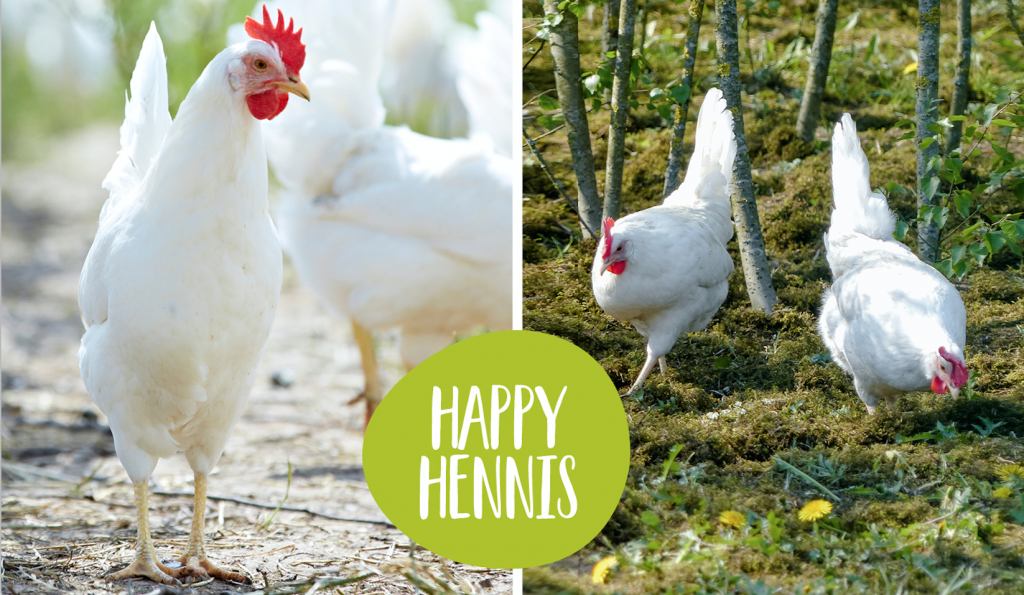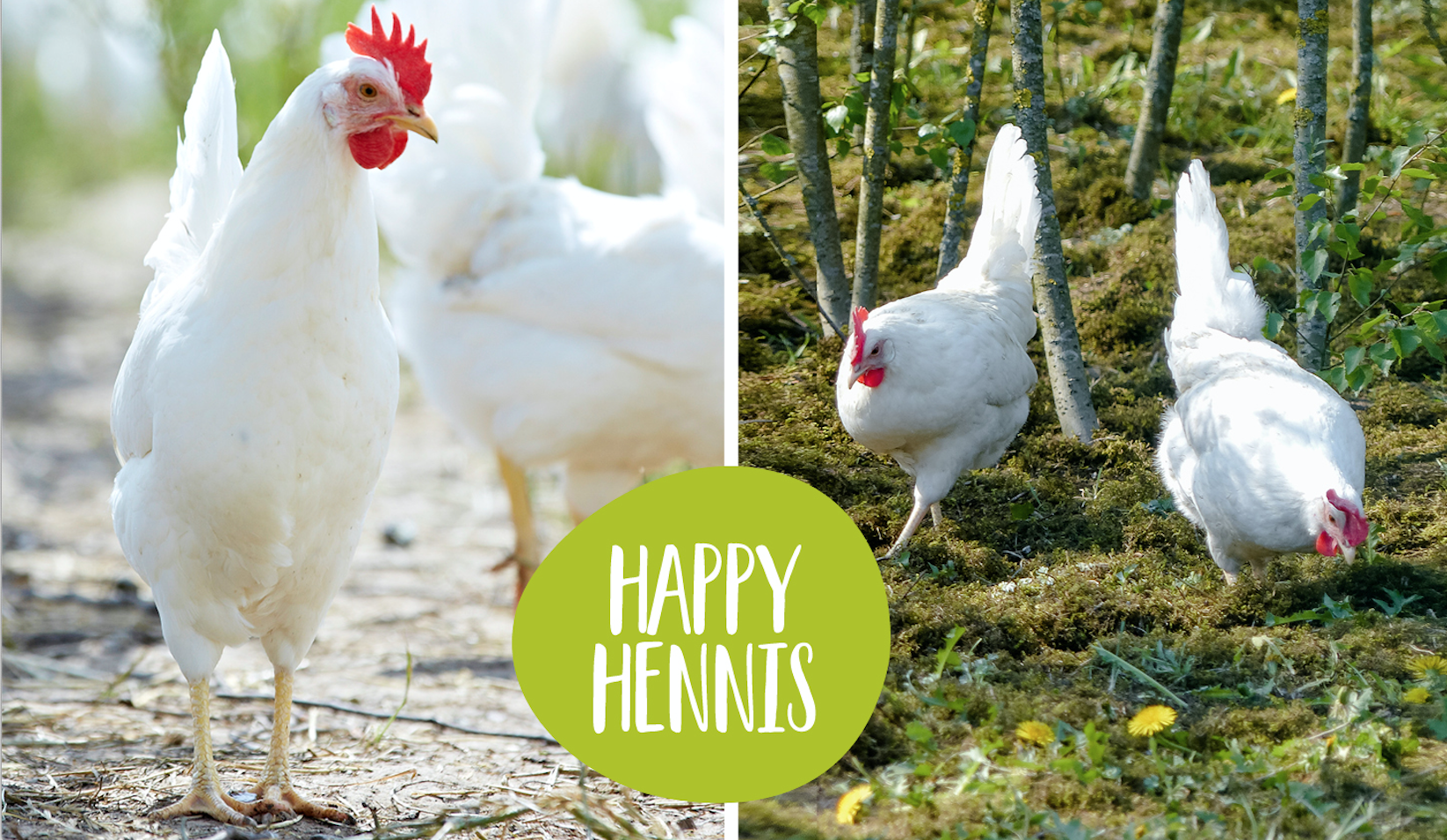Scurrying about in the shelter of forests, jumping into the treetops, taking a dust-bath in the shade and picking organic fodder: a start-up from Munich proves that animal welfare, climate and environmental protection are compatible with profitable food production. The result: The Climate Egg. And it is under this name that the company Pumperlgsund brings the organic eggs with a special ecological footprint to German supermarkets at Easter.
The forest chickens: 365 days a year the chickens can go into the forest

(Photo: Pumperlgsund)
The happy chickens in the video: https://youtu.be/GXdxCmhvOJo
The international Eaternity Institute has measured the ecological footprint of egg production, including transport to retailers. The study revealed: 11 out of 12 possible points. The Climate Egg had to prove itself for the Eaternity Score in four categories: animal welfare, environment, rainforest and water.
And the evaluation results are impressive:
The Climate Change Egg has a 27% better carbon footprint than the average organic egg (EU
organic) – and is 47 % better than the free-range egg.
The production of six Klima-Egg consumes only 26 litres of water.
The entire value chain produces only 857 grams of CO2 – for normal organic eggs it is over 1,000 grams.


